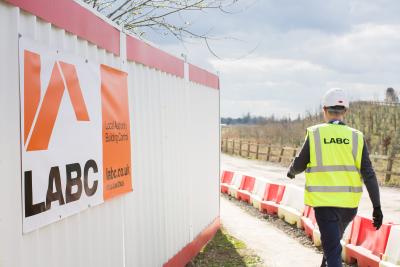Is the building control sector really on the "cusp of disaster"?
On 14 August 2019 Paul Timmins, Chief Executive of ACAI had an article published in Inside Housing in which he argued that the building control sector is on the cusp of disaster due to the difficulties some Approved Inspectors have faced when renewing their insurance. There were a number of factual inaccuracies in this article.
1. Mr Timmins said, "The last insurer providing cover for approved inspectors pulled out of the market earlier this year, leaving dozens of approved inspectors unable to renew..."
This is not the case – as far as we can ascertain ONE broker (Howden) pulled out of the market leaving just FOUR private Approved Inspectors (AIs) without insurance.
2. He went on to say, "Dozens more are expected to lose cover in the coming weeks, which will see more job losses and more delays." In reality there are currently six further AIs insured through Howdens who may face difficulty although to date many have managed to transfer policies to the remaining provider.
3. Mr Timmins claimed, "This has left more than 10,000 major projects on hold and local authorities – who are not required to protect consumers in this way – are struggling to provide the capacity to pick up the pieces."
This is not true, projects are now steadily reverting to local authority building control and LABC Members are actively working with affected AI clients to help them secure compliance. Recruitment into Local Authority Building Control is the highest it has been in decades and this is being supported by a robust and proactive competency and education process.
With regards to indemnity insurance it is true that Local Authorities don’t need to carry these insurances. MHCLG clarified the position in their Circular letter of 10 July 2017 which set out the criteria for Schemes of Insurance for Approved Inspectors it explains that, 'Approved Inspectors do not have the financial strength of local authorities as permanent, statutory bodies.
For this reason, one of the safeguards provided for in legislation is that an Approved Inspector must have public liability and professional indemnity insurance approved by the Secretary of State.'
The sole role of Local Authority Building Control is to protect the public and it is a not-for-profit statutory role that is a legal duty of local government. LABC are in regular dialogue with MHCLG and have set up a transfer process to allow projects to revert to local authorities.
Criteria for insurance schemes must be maintained
LABC is deeply concerned that there is currently an attempt to persuade the Secretary of State to dumb down the current insurance scheme so that more Approved Inspectors can gain insurances.
LABC’s position on this subject is very clear; if insurance scheme requirements are reduced this will completely undermine consumer protection and leave end users of buildings in a vulnerable position. These robust insurances that were laid down by the Secretary of State should not be watered down.
MHCLG’s circular letter states '[public liability and professional indemnity insurance] protects clients and others who may be adversely affected by any breach of contract, negligence or misrepresentation on the part of the Approved Inspector, by ensuring that, subject to the limits on cover, the Approved Inspector has the financial resources to comply with any award of damages or out of court settlement'.
The criteria for schemes of insurance must be maintained. The correct response by Government must be to tighten the system – not to reduce protection for property owners.
Further information
Sign up to the building bulletin newsletter
Over 48,000 construction professionals have already signed up for the LABC Building Bulletin.
Join them and receive useful tips, practical technical information and industry news by email once every 6 weeks.
Subscribe to the Building Bulletin




Comments
Add new comment